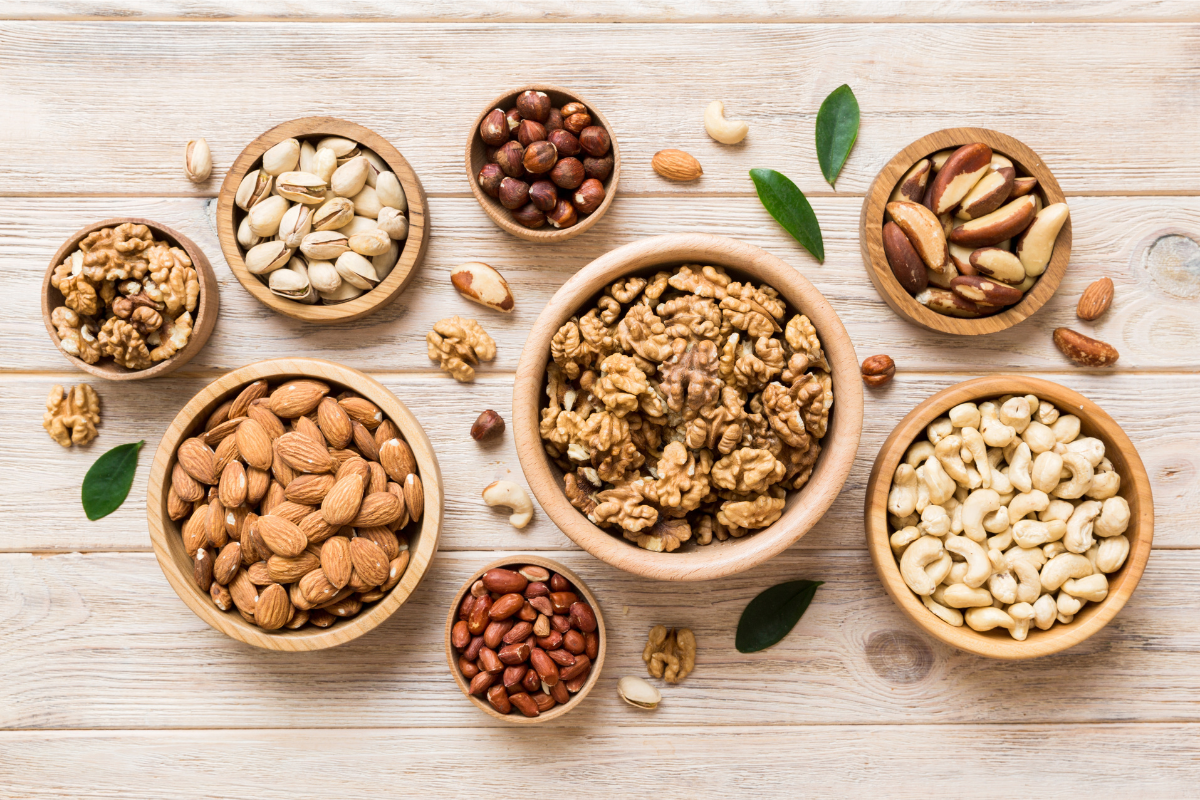Nuts are among the most conveniently available food items. Their versatility helps them fit into absolutely any diet, from vegan to keto. Besides being a great source of healthy fats, nuts are also rich in other nutrients and antioxidants.
Despite their amazing benefits and general advantages, nuts still struggle with moderate levels of misinformation surrounding them. We’re here to clear those away and spread some love for these underrated nuts. It’s time to ‘crack’ the code, here are 3 amazing ones to add to your diet immediately.
Almonds
Starting with the most popular of all nuts: almonds. They’re popular for a reason. Rich in antioxidants, vitamins, and minerals, these highly nutritious nuts carry a ton of nutritional value for their size. They’re literally mini bombs of nutrition!
Nutrition Profile (approximately 30 grams):
Calories: 129 kcal
Fiber: 3.5 grams
Carbohydrates: 8 grams
Protein: 6 grams
Fats: 14 grams (5 grams saturated, 9 grams monounsaturated)
Benefits: Almonds are a wonderful source of Vitamin E. Vitamin E is what protects your cells from oxidative damage. Say hello to great skin! With loads of magnesium, almonds also aid in reducing blood pressure. Include them in your diet to help lower your cholesterol and prevent the harmful oxidation process LDL cholesterol from ever taking place.
Pistachios
Pistachios are one of the favorites among all nuts. Given their incredible taste, it’s only fair. And they’re so much fun to peel, right? Besides being an excellent source of antioxidants, pistachios are also rich in protein and gut-friendly bacteria.
Nutrition Profile (approximately 30 grams):
Calories: 159 kcal
Fiber: 3 grams
Carbohydrates: 8 grams
Protein: 6 grams
Fats: 13 grams (90% of which are healthy, unsaturated fats)
The gut-friendly bacteria in pistachios aid in digestion, immunity, recovery, and general well-being. Also, did you know that the protein content in pistachios is higher than their calorie count? It’s perfect for fitness enthusiasts out there who want a source of protein without adding too many calories to your diet. Including pistachios in your diet also helps in promoting blood vessel health and helps with blood pressure management as well.
Cashews
These kidney-shaped tree nuts were initially native to Brazil. However, cashews are now grown throughout the world in all places with a warm, tropical climates. Like its companion nuts above, cashews host a slew of health benefits as well.
Nutrition Profile (approximately 30 grams):
Calories: 157 kcal
Fiber: 1 gram
Carbohydrates: 9 grams
Protein: 5 grams
Fats: 12 grams
Even though Cashews are referred to as ‘tree nuts’, they are actually seeds. They are a rich source of beneficial plant compounds and antioxidants that help in neutralizing harmful molecules in our bodies, known as free radicals. Cashews have also proved to be beneficial to patients suffering from Type 2 Diabetes. Other than that, they have also been linked to improved heart health and help balance the LDL to HDL cholesterol in the body.
The benefits of nuts are usually overlapping. One common theme is that nuts help to aid in improving heart health. Contrary to what most people believe, nuts, when consumed in moderation, has also been linked to aiding in weight loss. Nuts can be eaten in the form of toppings, trail mixes, and in addition into shakes and smoothies. Besides this, nuts can also be blended into nut milk, giving you a dairy-free option for the same. So what are you waiting for? Go nuts!

